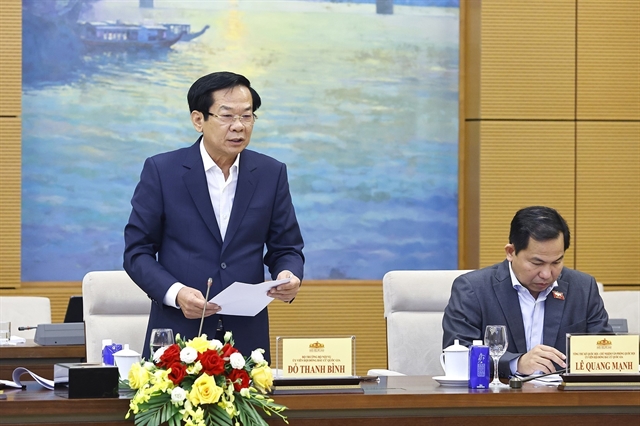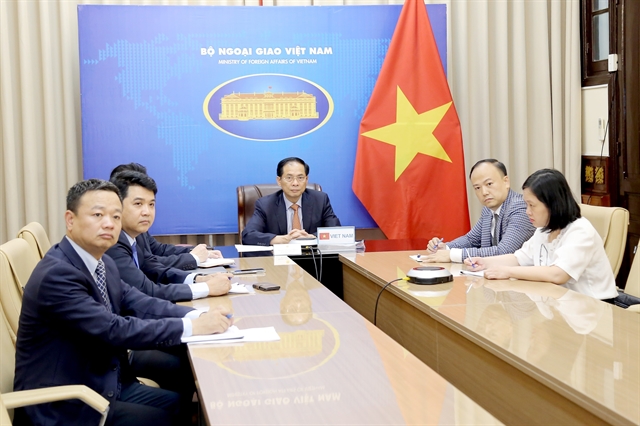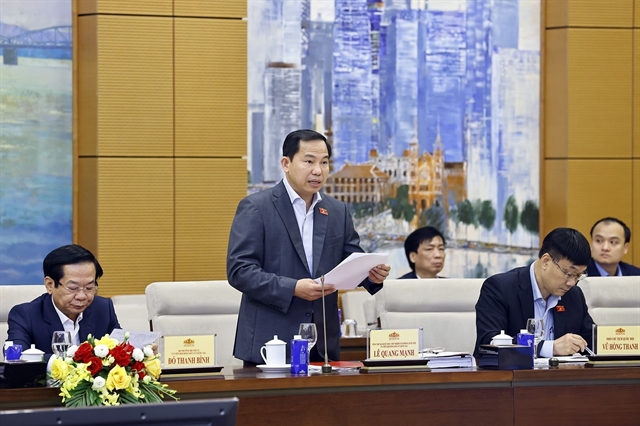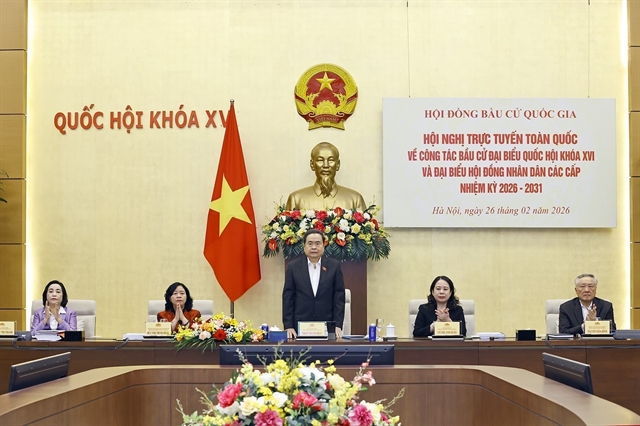 Politics & Law
Politics & Law


|
| Minister of Foreign Affairs Bùi Thanh Sơn taking part in the virtual ministerial meeting to launch the global coalition to address synthetic drugs. — VNA/VNS Photo |
HÀ NỘI — Minister of Foreign Affairs Bùi Thanh Sơn joined representatives of 70 countries and relevant international organisations at a virtual ministerial meeting to launch the global coalition to address synthetic drugs on July 7 (US time) under an initiative of United States Secretary of State Antony Blinken.
In his speech at the meeting, foreign minister Sơn shared global concerns about the threat posed by synthetic drugs, and emphasised the need to promote international cooperation in the spirit of respecting the sovereignty, territorial integrity and non-interference in internal affairs of countries, with holistic measures and a comprehensive approach, to deal with issues related to drug supply and demand.
He also stressed that joint efforts by the international community to address relevant issues should support the implementation of the three basic conventions on drugs and help further strengthen the role of the United Nations Commission on Narcotic Drugs (CND).
The Vietnamese official suggested that international attention should be paid to enhancing support for developing countries in sharing information, improving capacity, resources and technology, saying that in order to solve the drug problem in a sustainable way, it is necessary to strengthen measures to eliminate hunger, reduce poverty, promote education and create jobs, especially for young people.
Sơn also talked about the efforts of Việt Nam and ASEAN to strive for a drug-free environment, and affirmed Việt Nam’s support for international efforts to create more motivation and mobilise more resources for the fight against drug at the national, regional and international levels.
Delegates expressed their deep concerns about criminal activities related to the production, transportation and trafficking of drugs, and the negative effects of drug active ingredients on public health and social security.
Challenges that the synthetic drug problem poses to sustainable development such as poverty reduction, education and employment security were also put on the table.
Delegates pledged to coordinate actions at the national, regional and international levels in drug prevention and control, based on science and transparent information, and a comprehensive and balanced approach.
Countries also highly valued the role and ability to provide technical assistance and expert experience of existing international drug control mechanisms such as CND, the United Nations Office on Drugs and Crime (UNODC) and the International Narcotics Control Board (INCB).
This is the first conference held under the initiative of the US Secretary of State to promote discussion, information sharing and cooperation and action coordination in response to the threat posed by synthetic drugs, which are emerging in many parts of the world. — VNS




